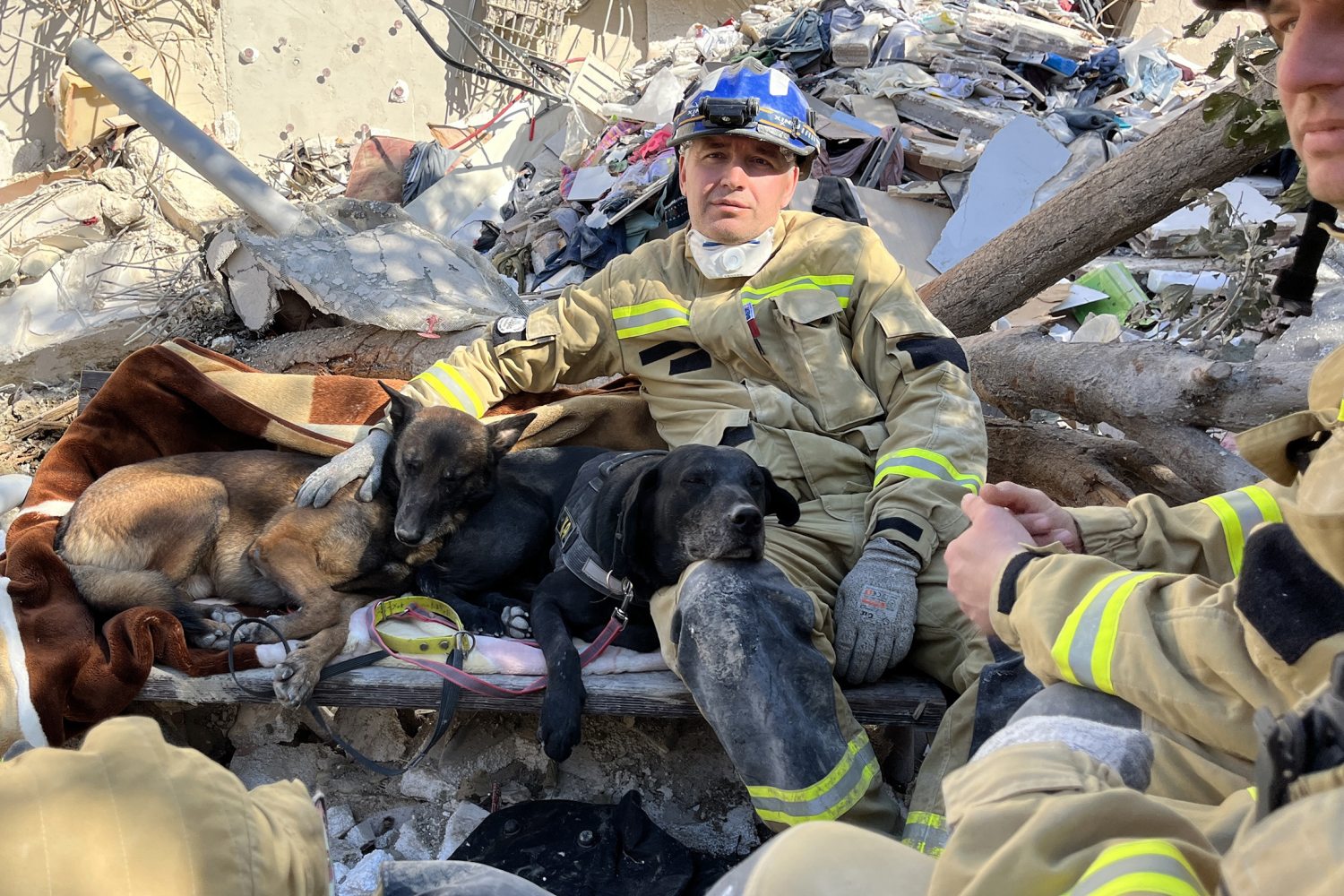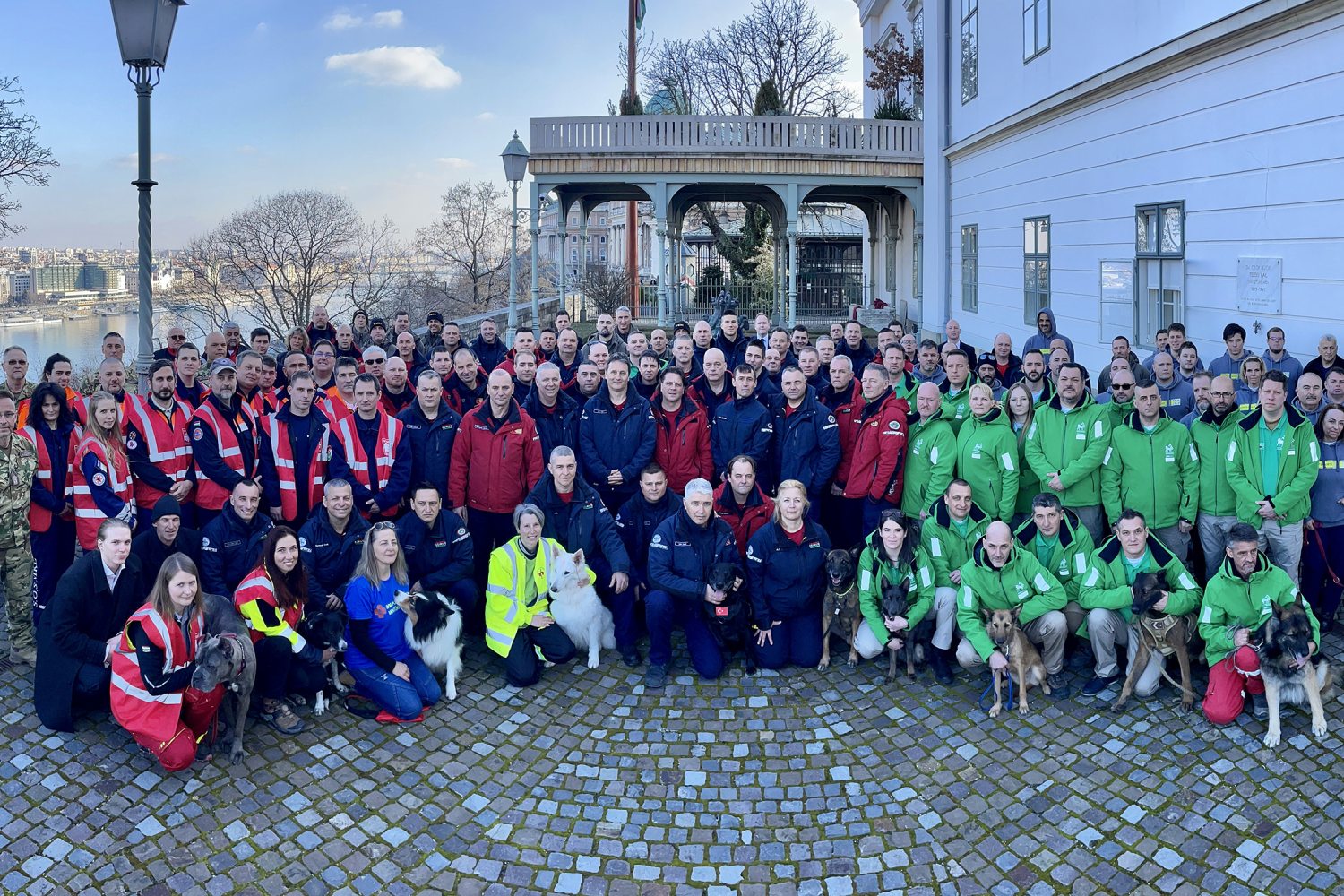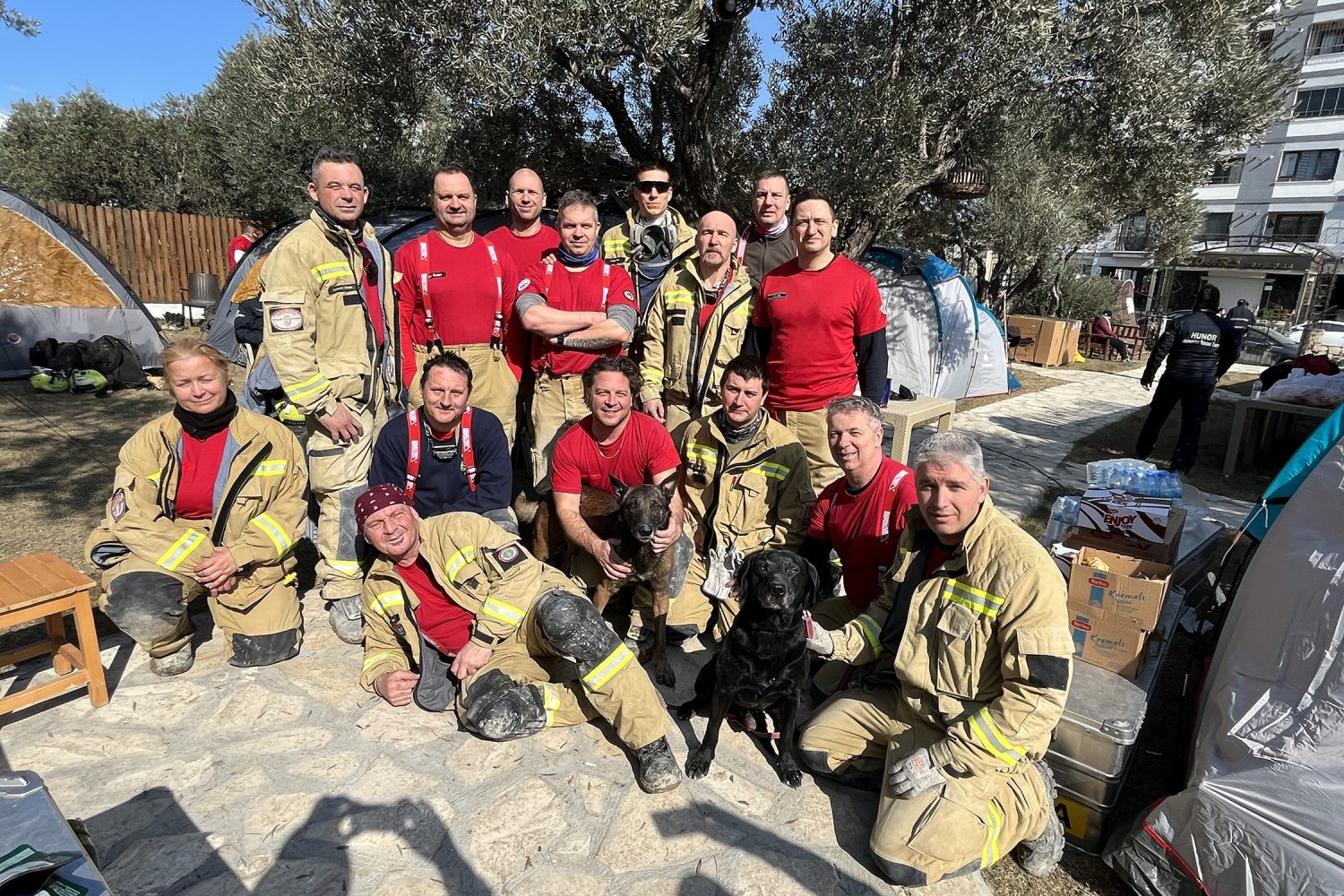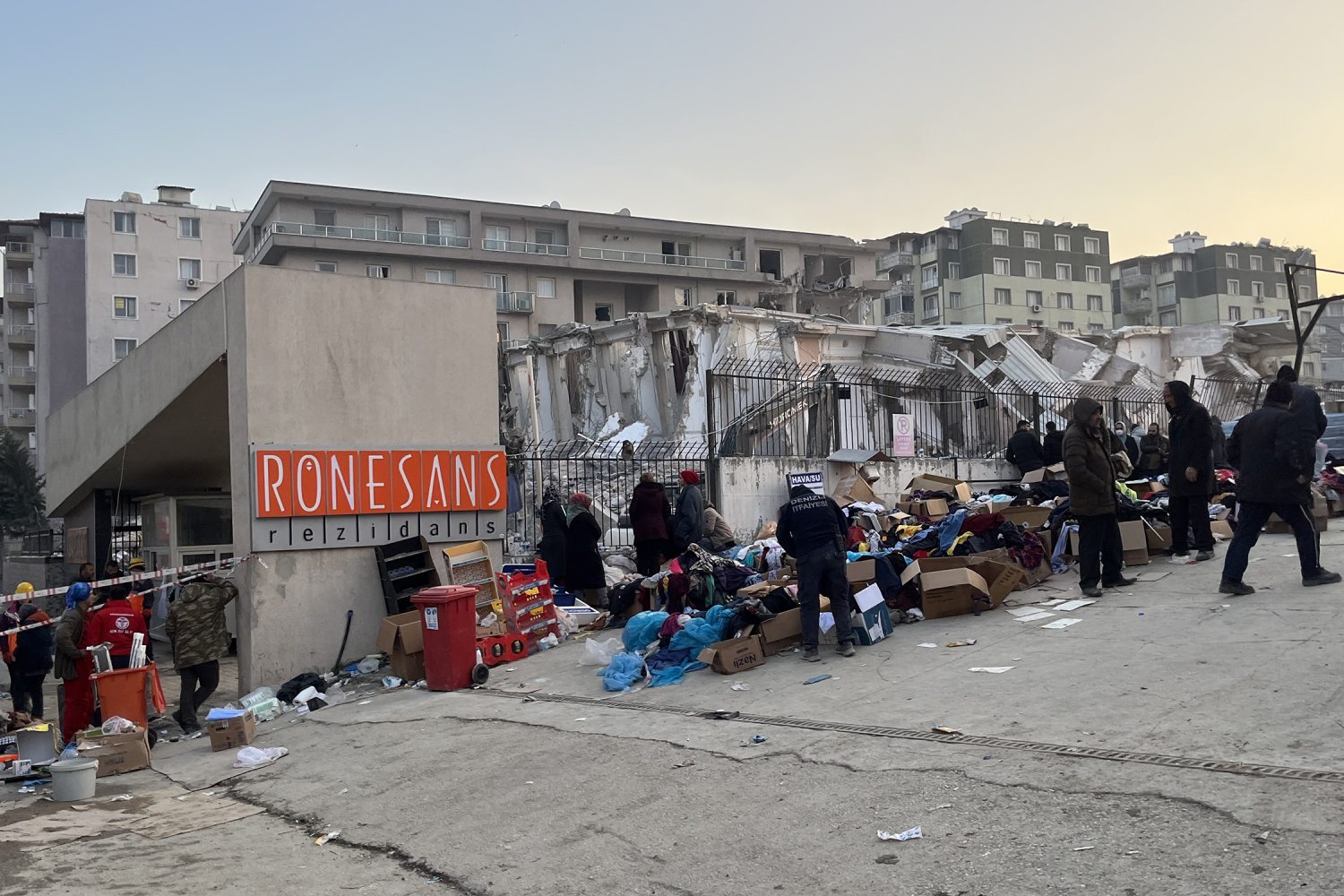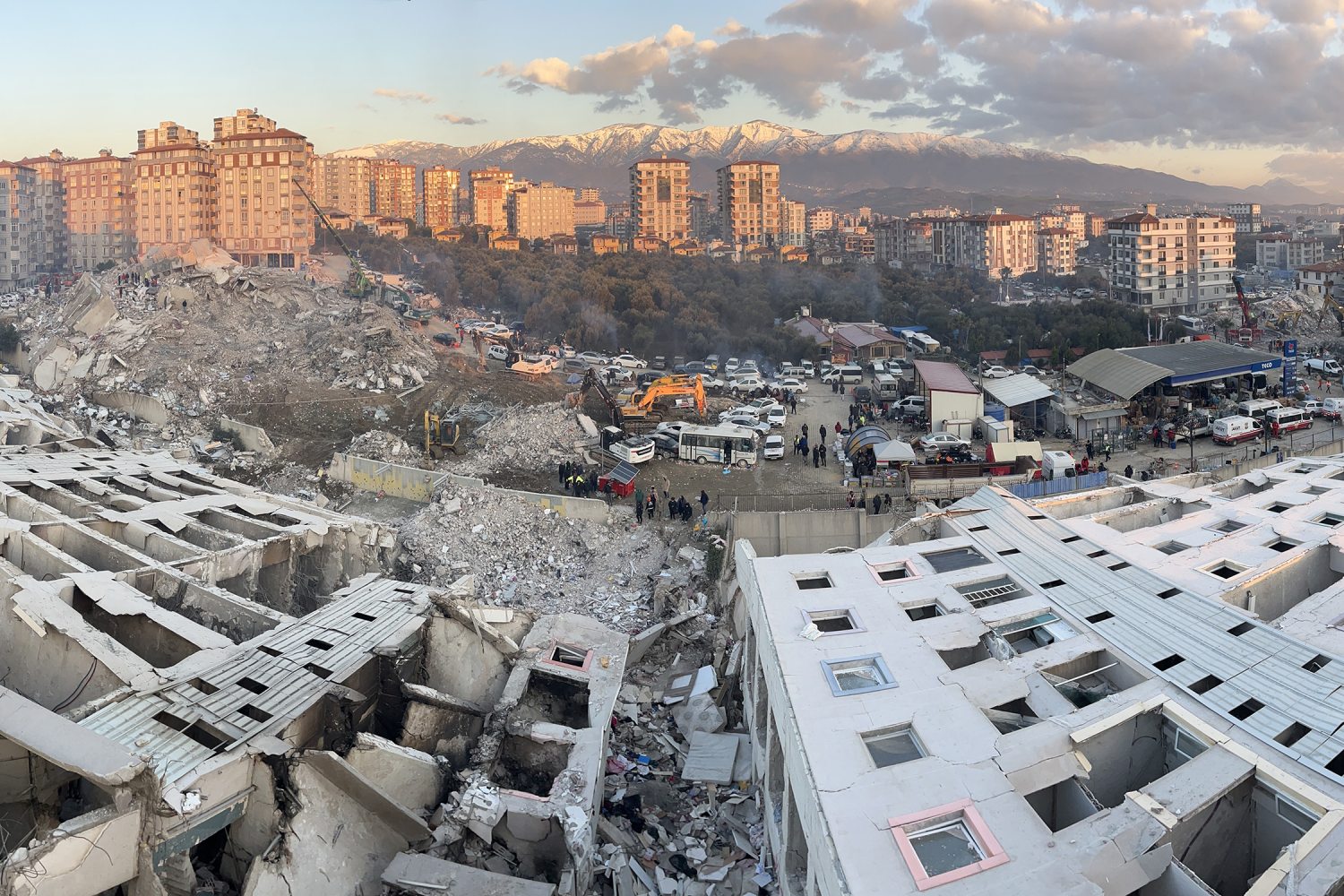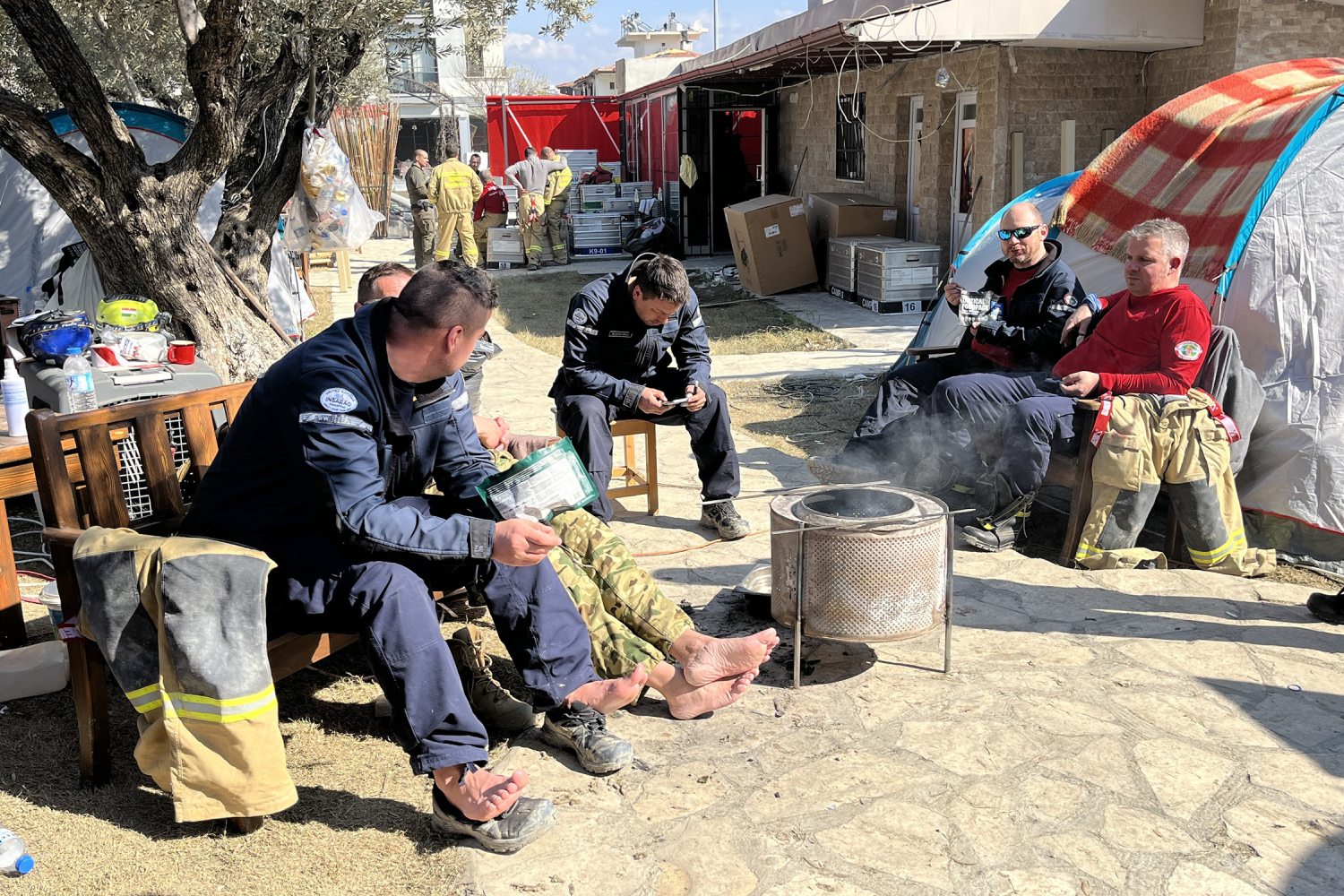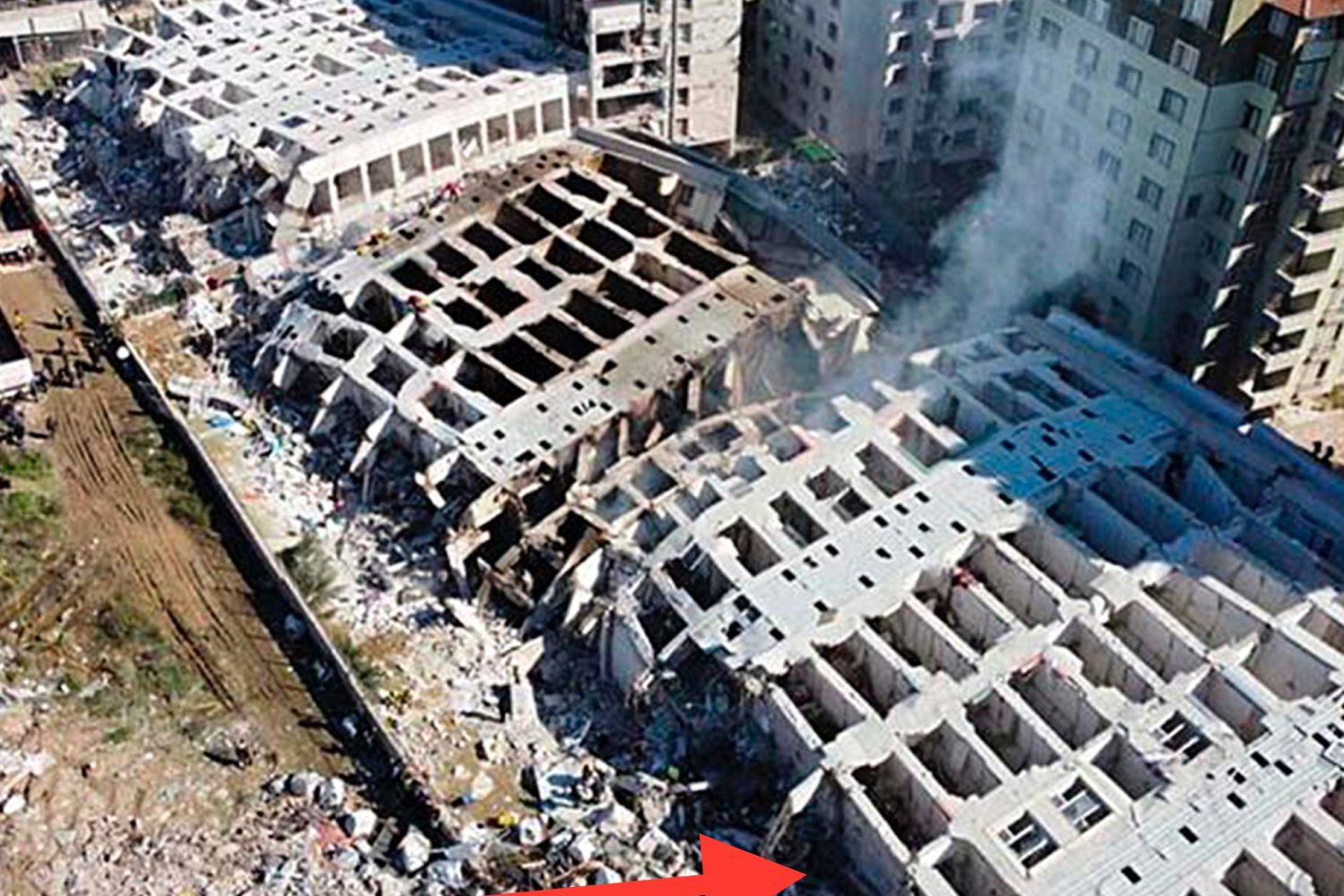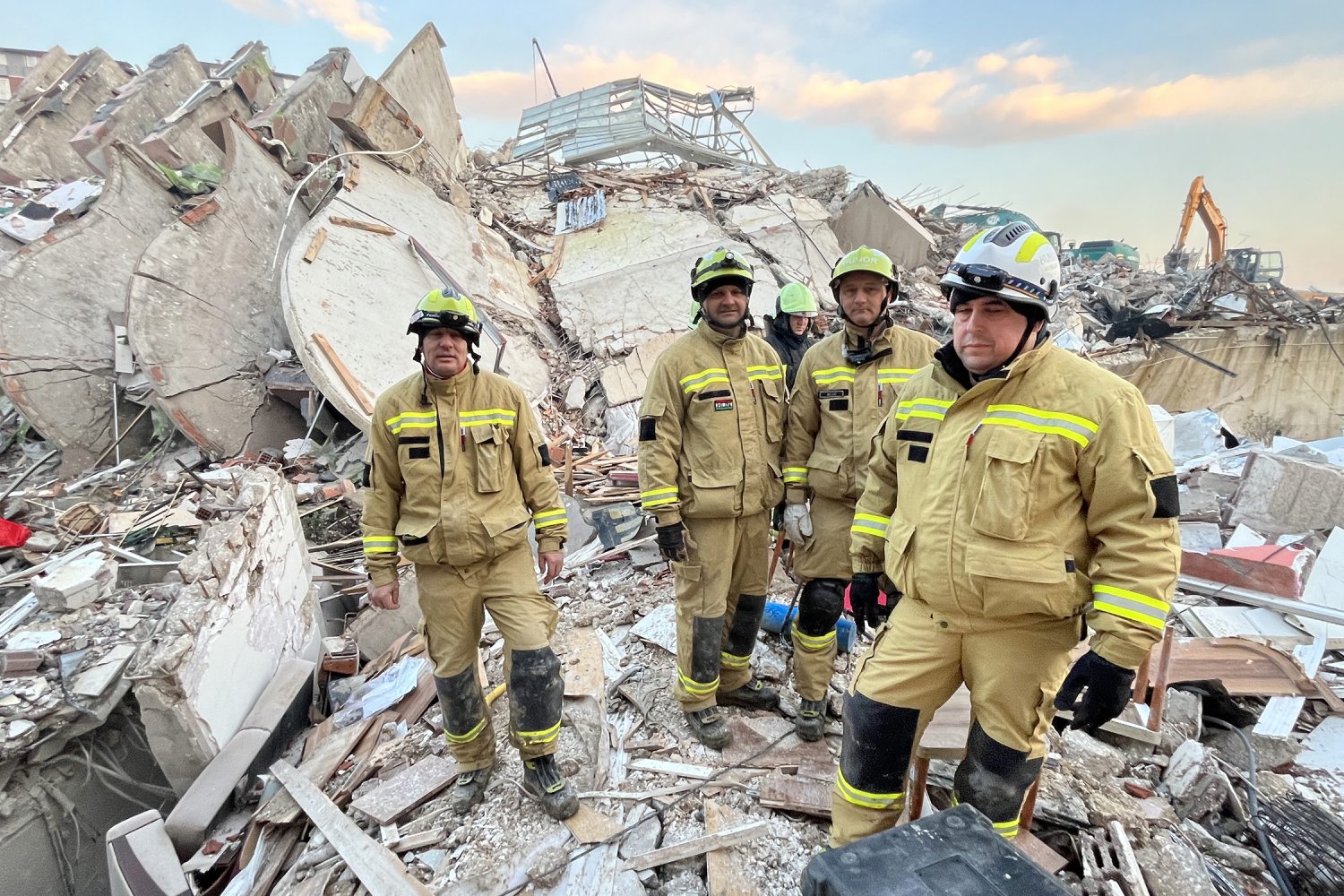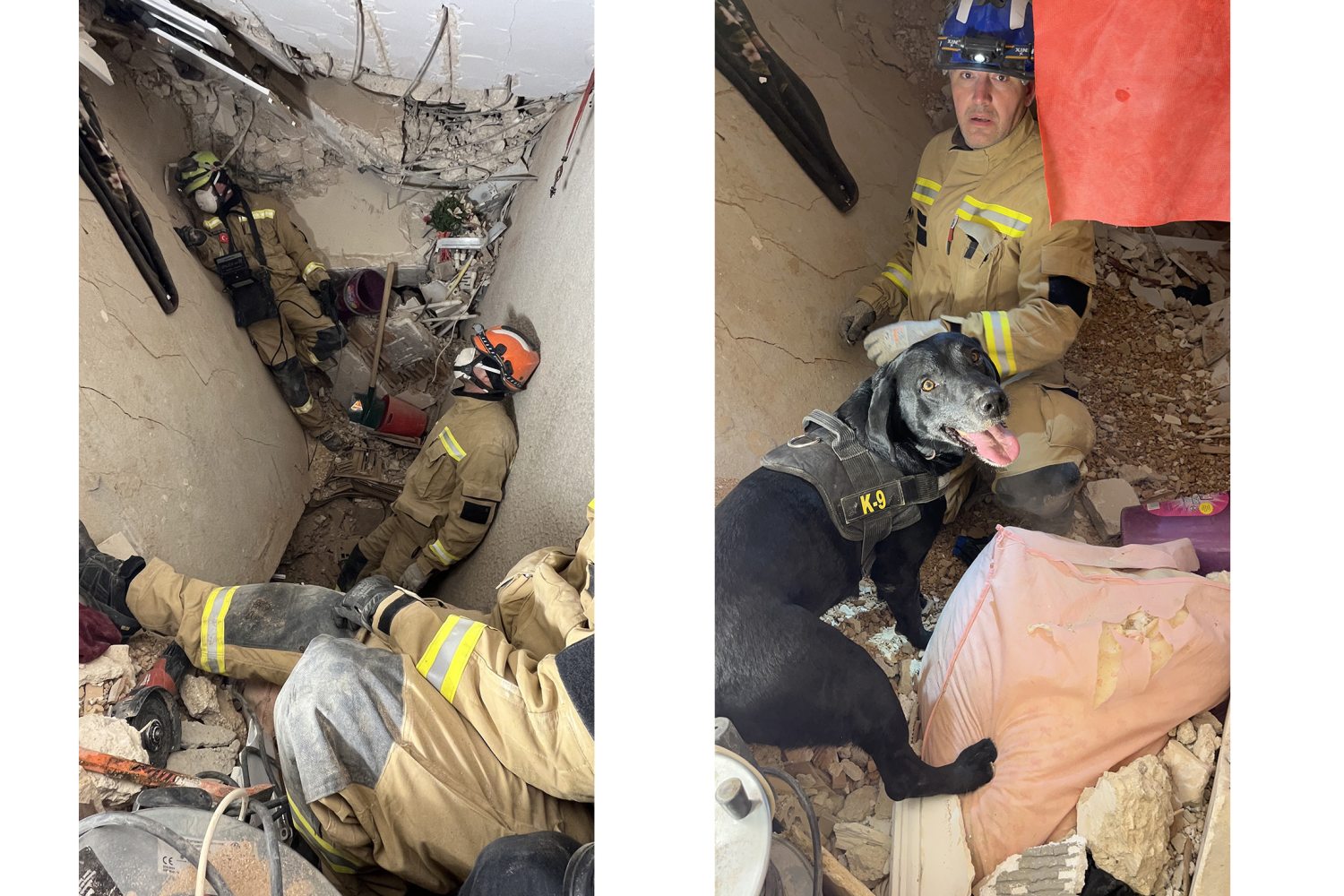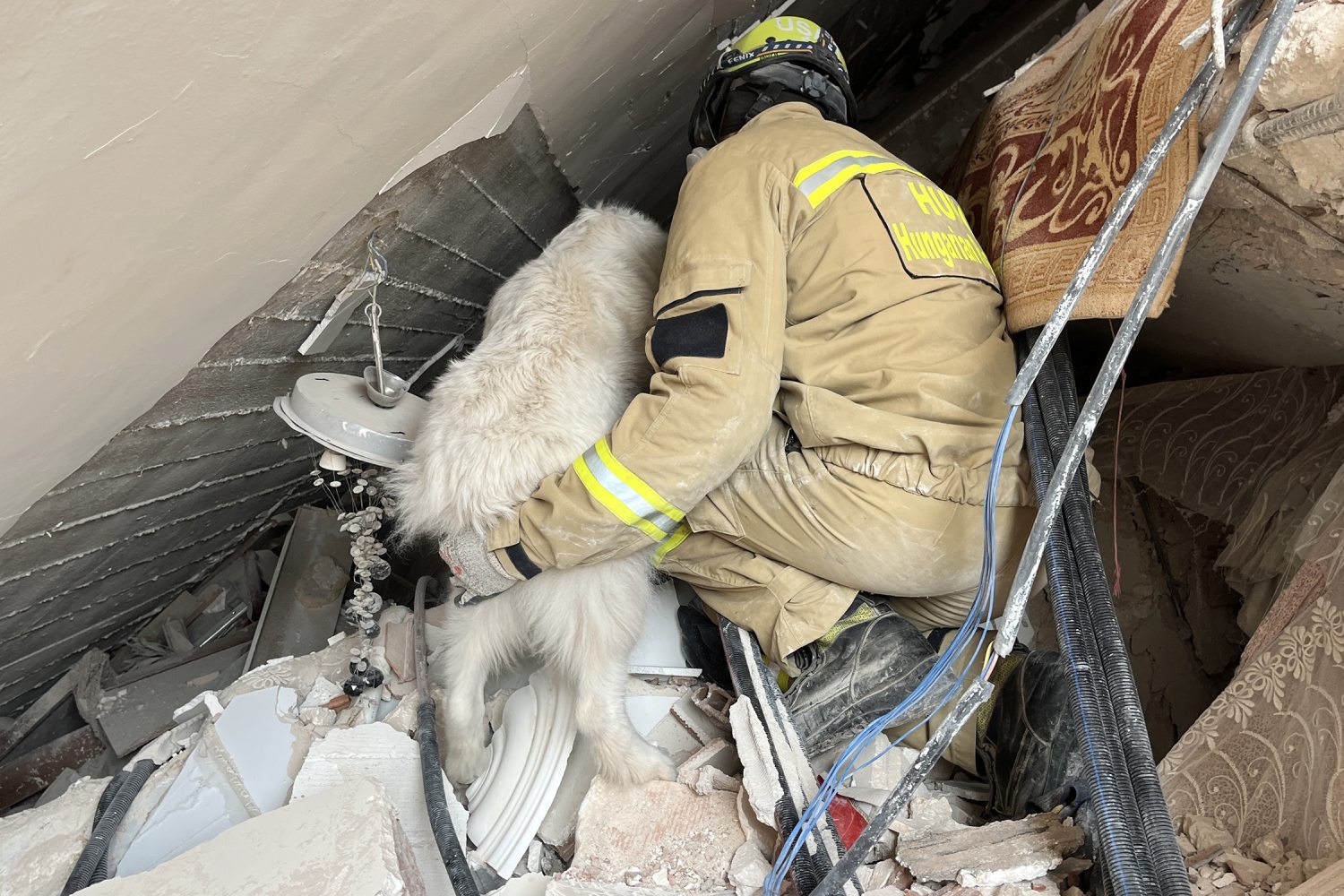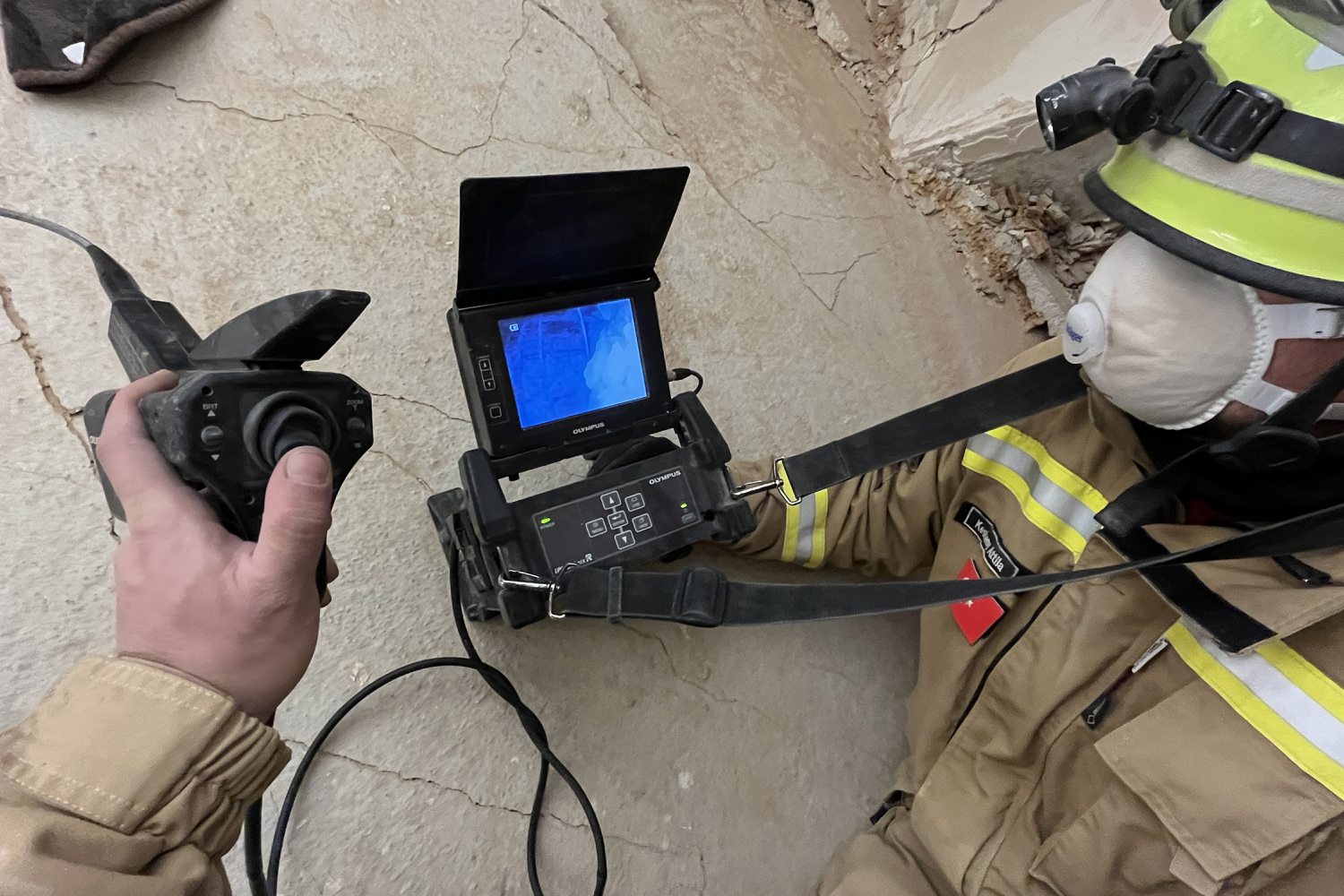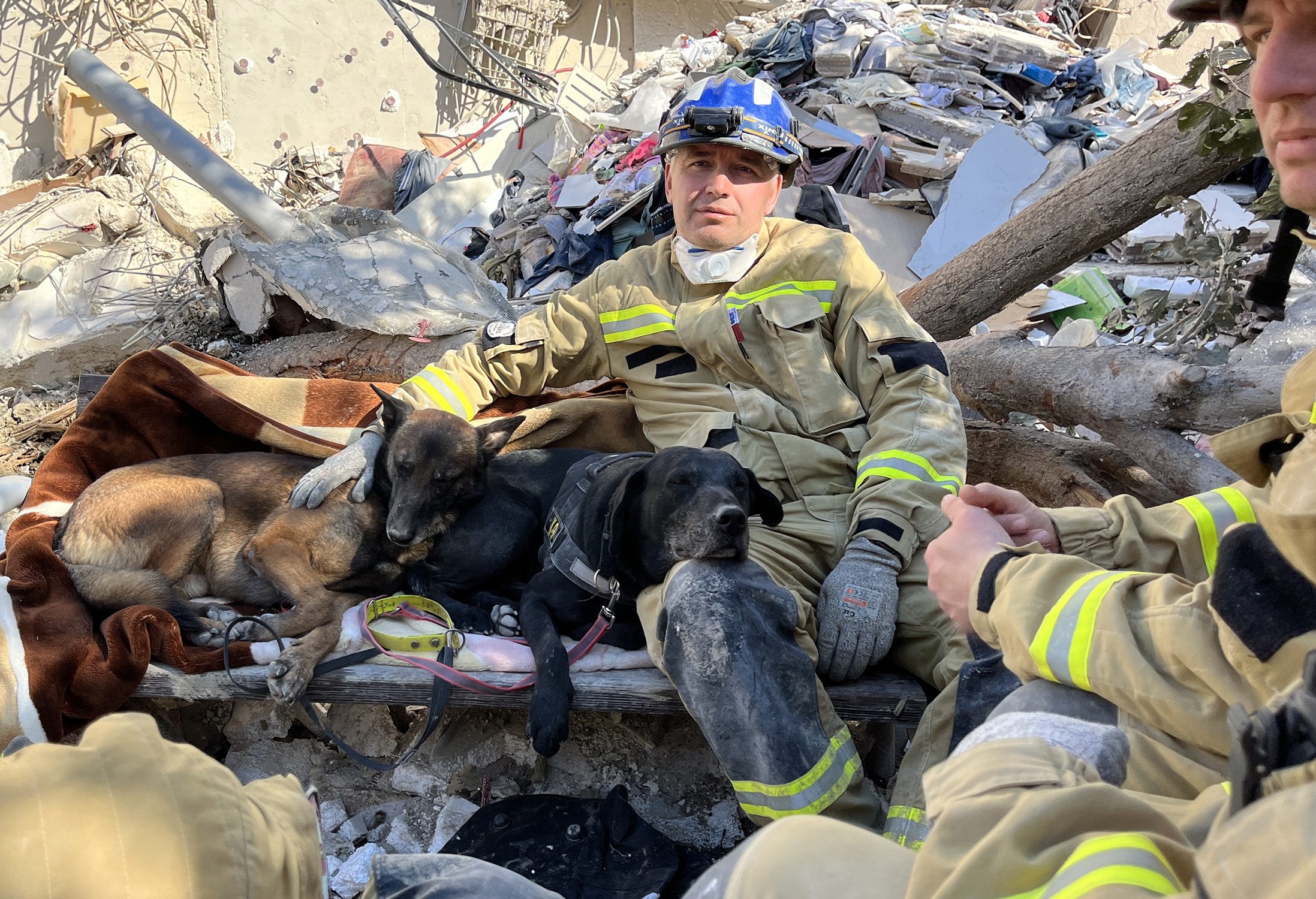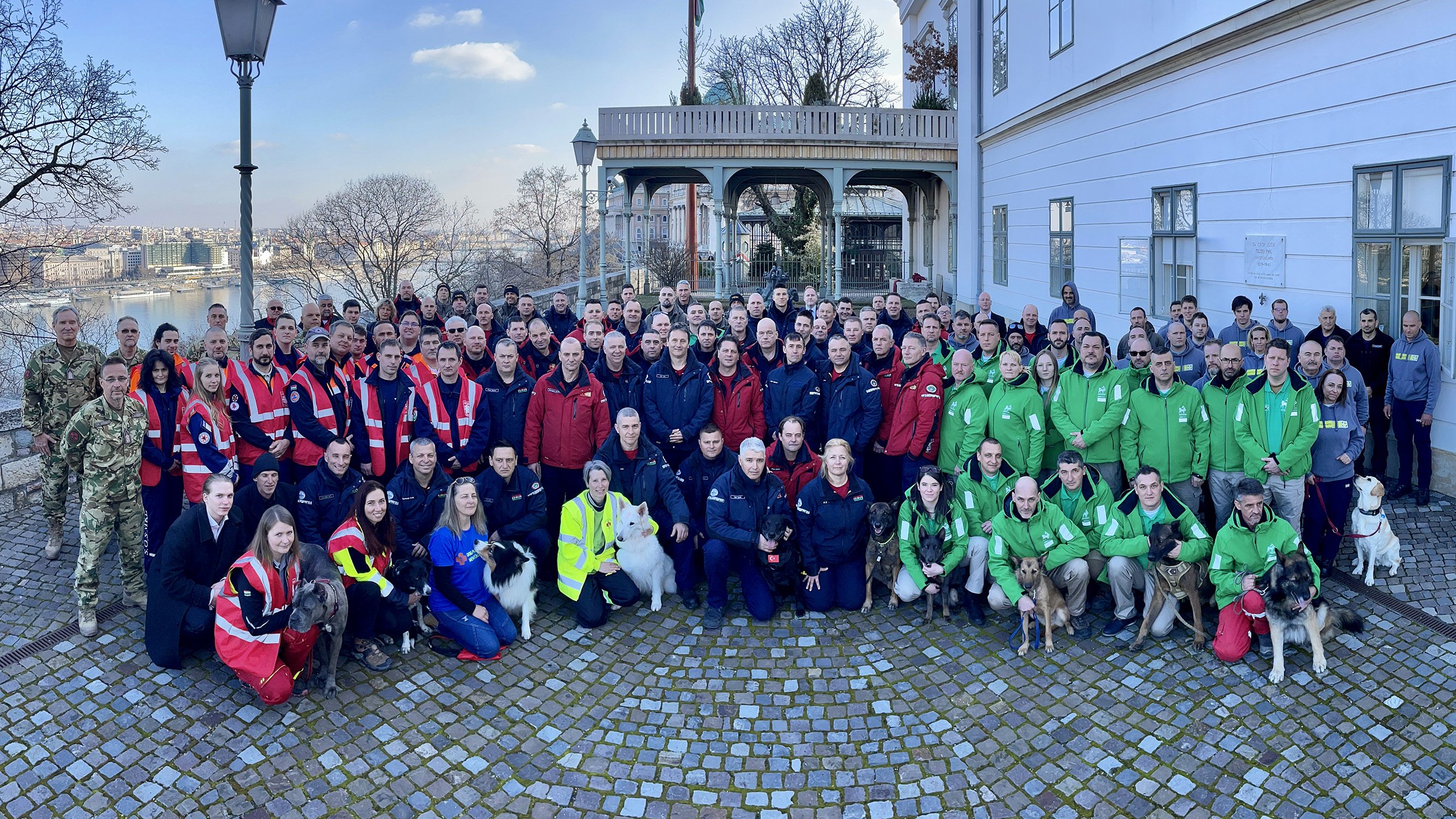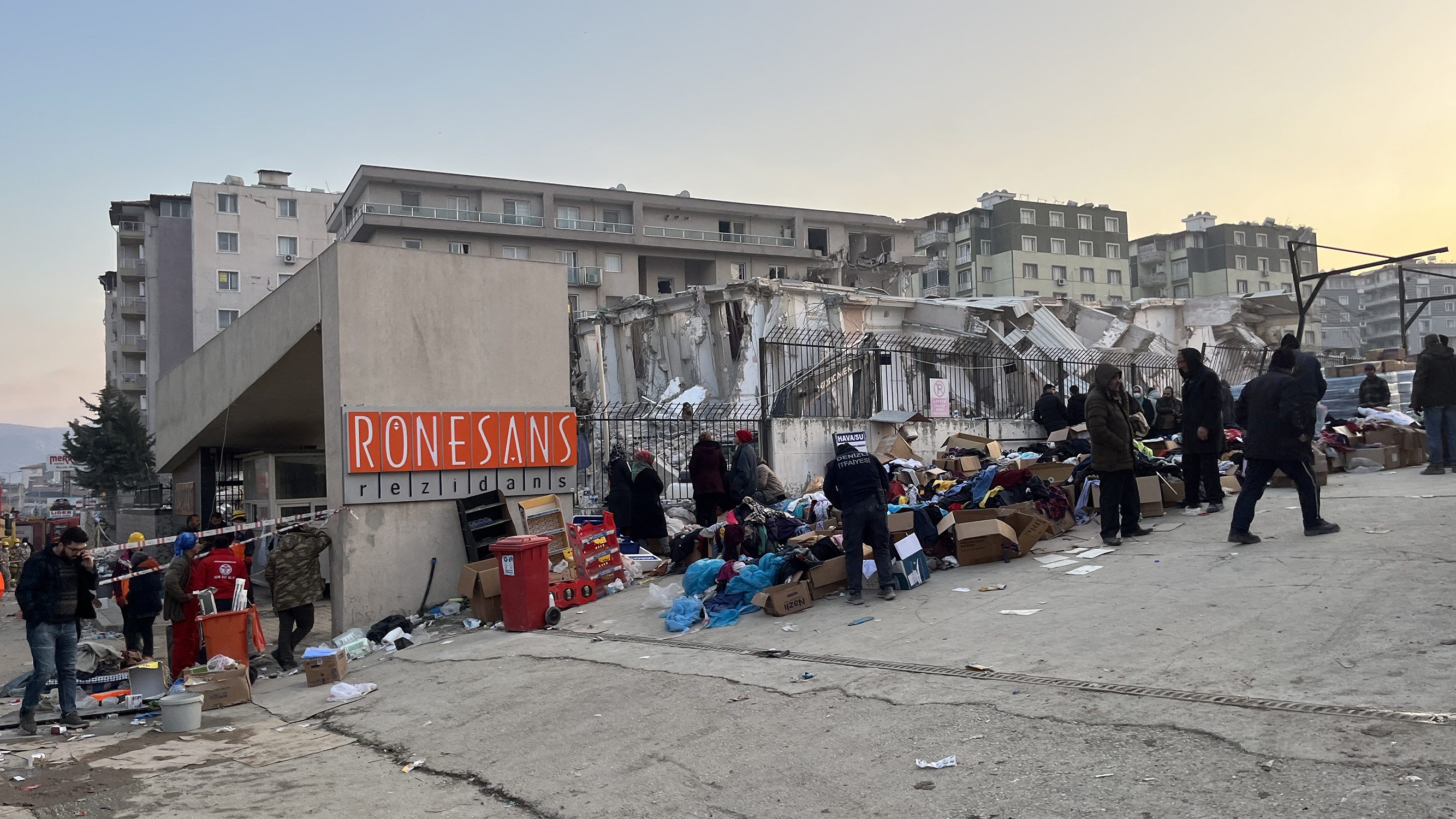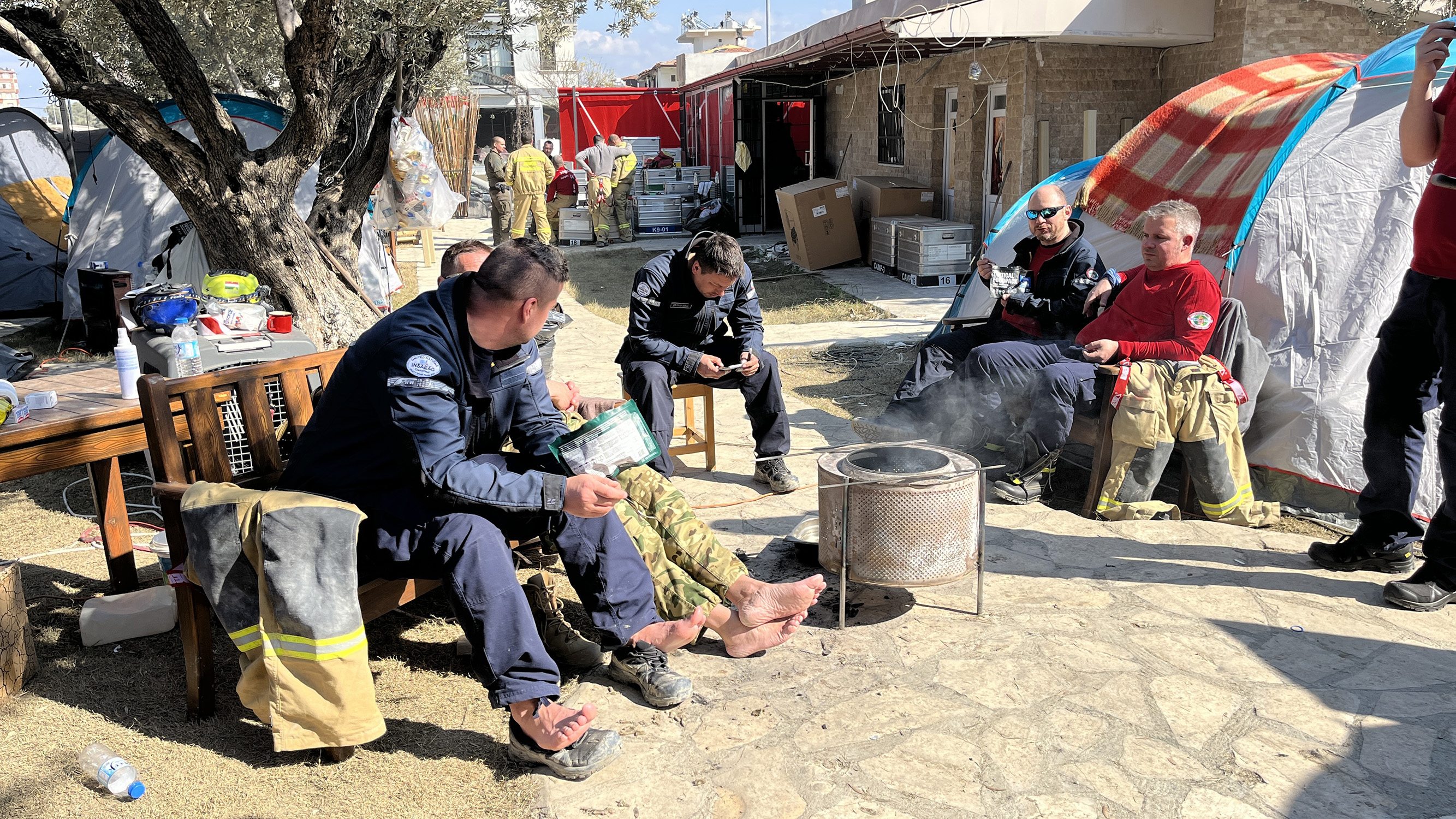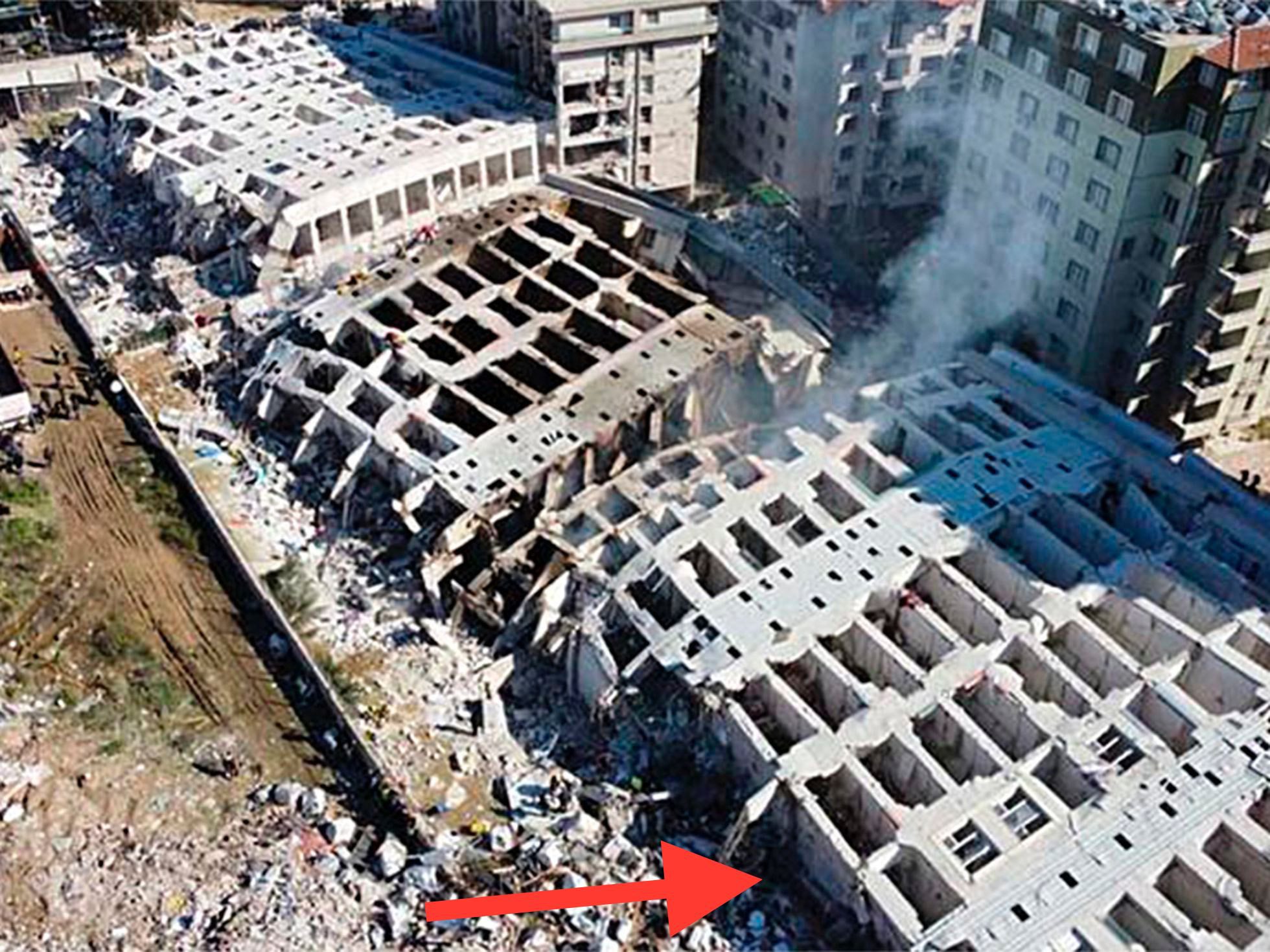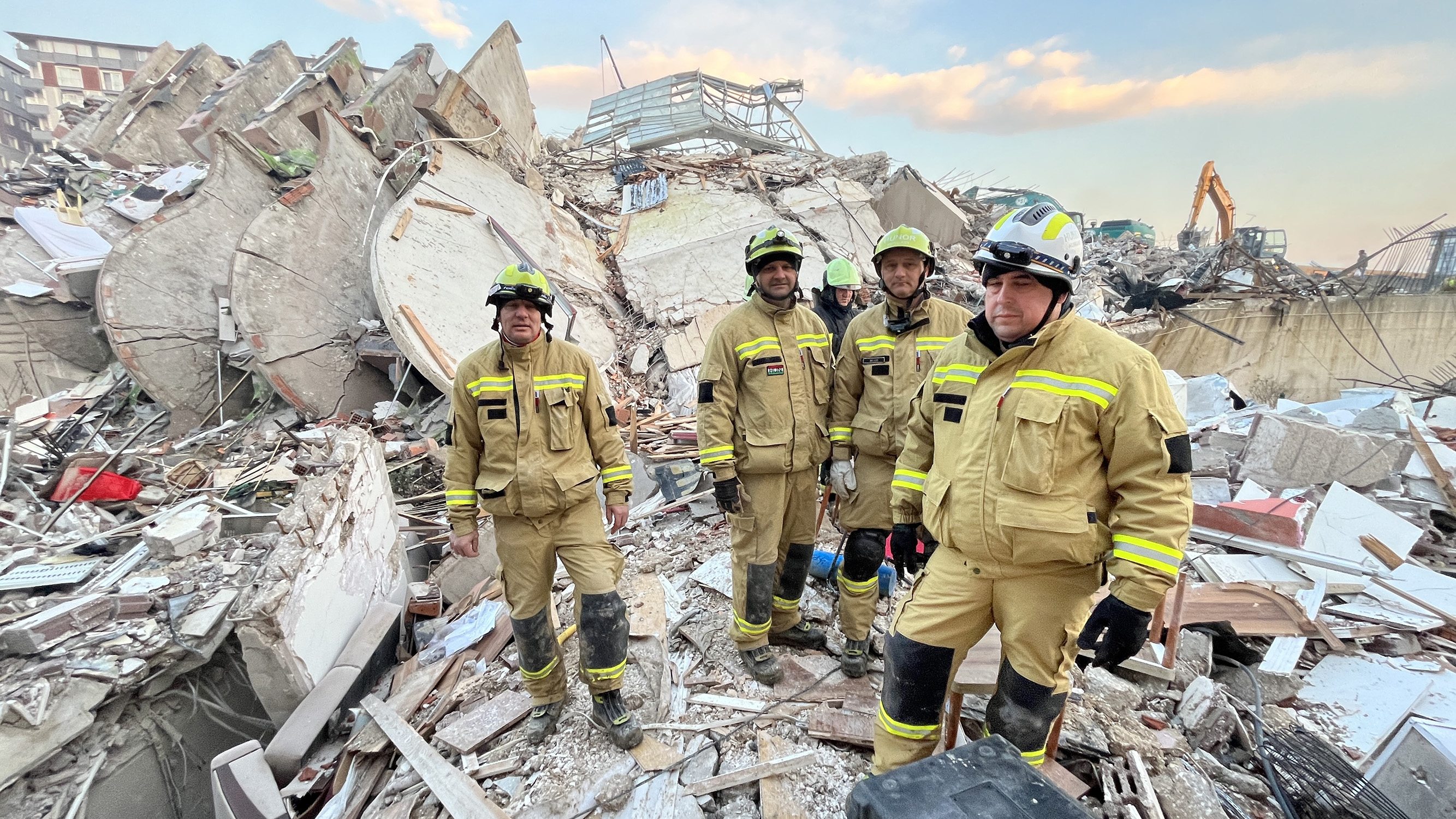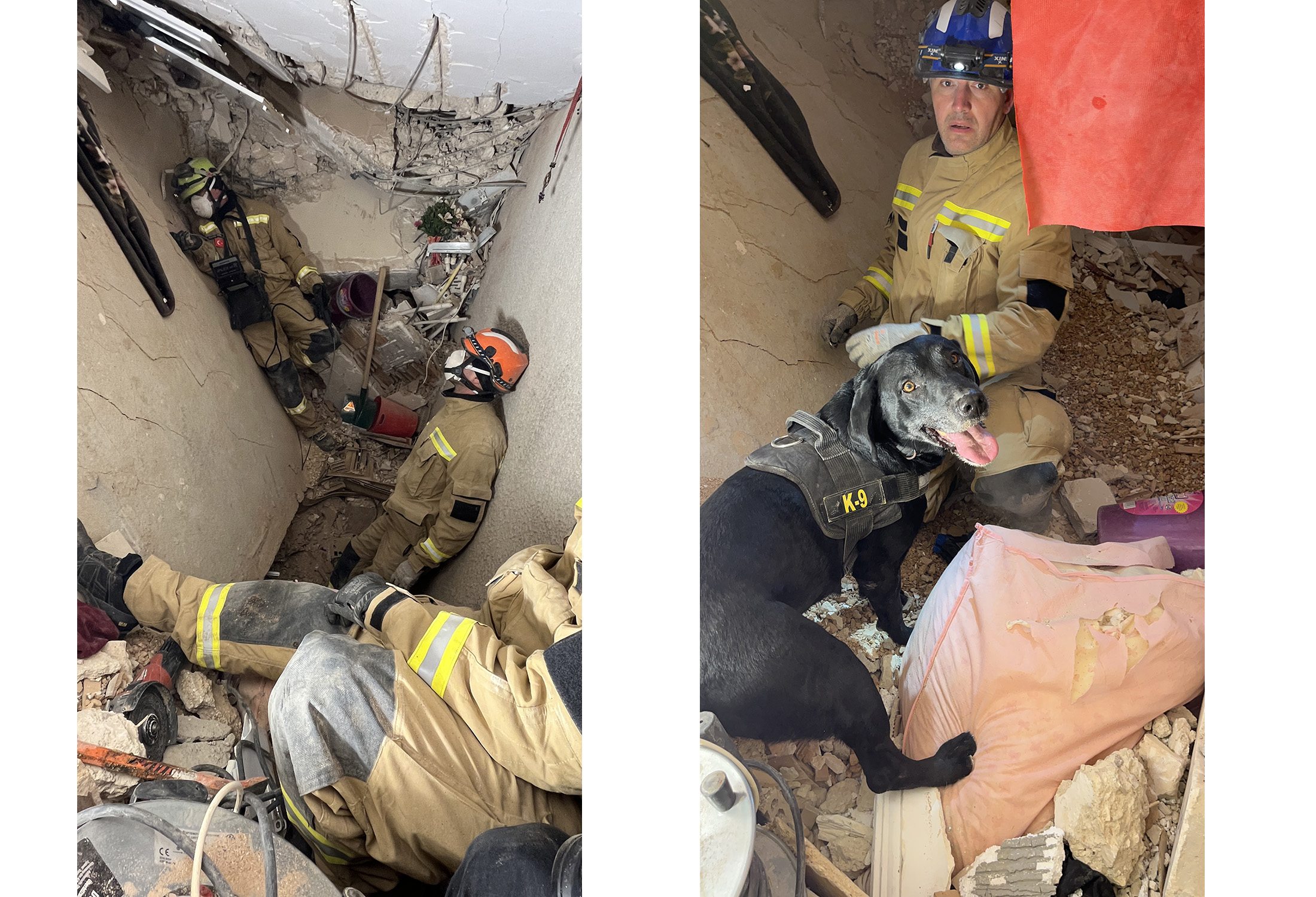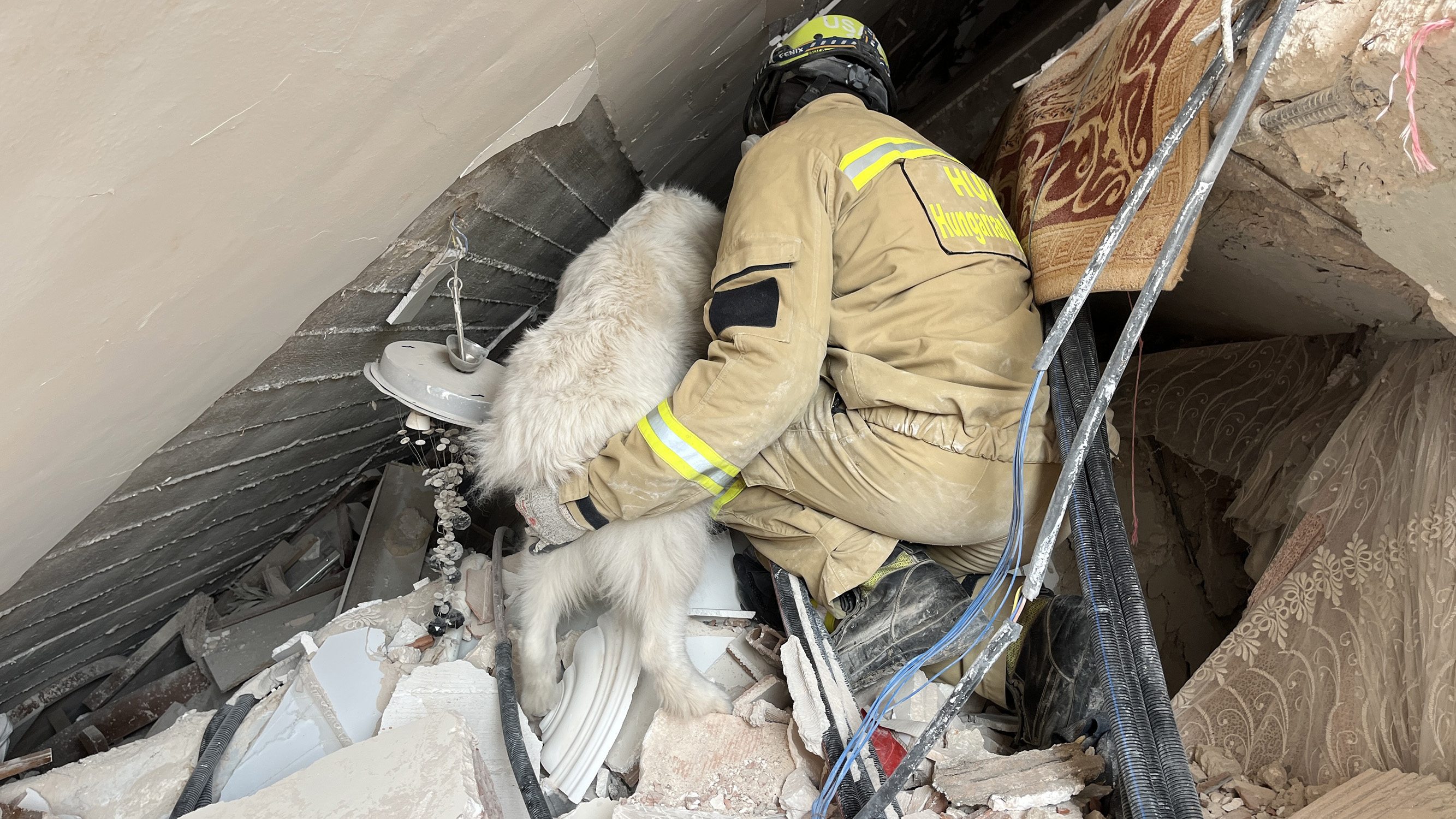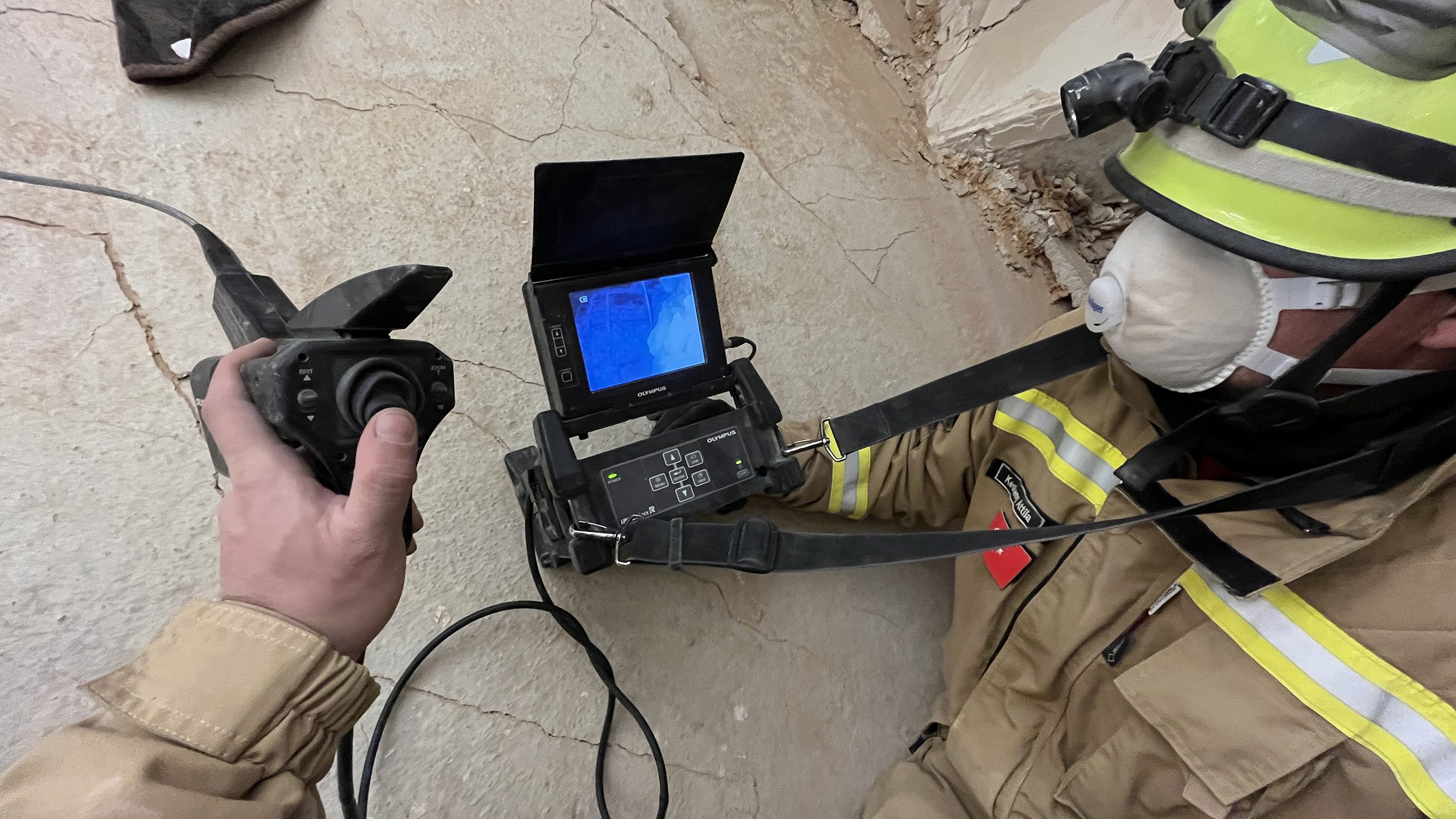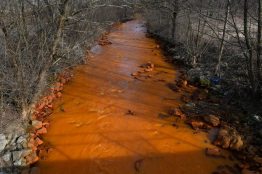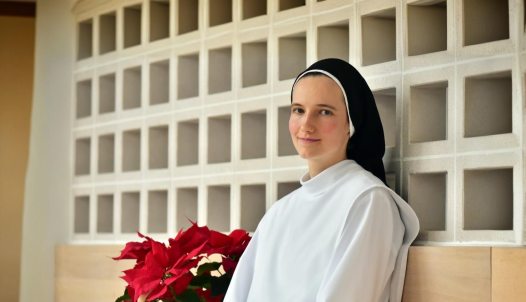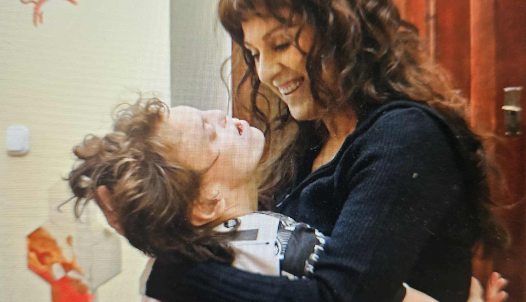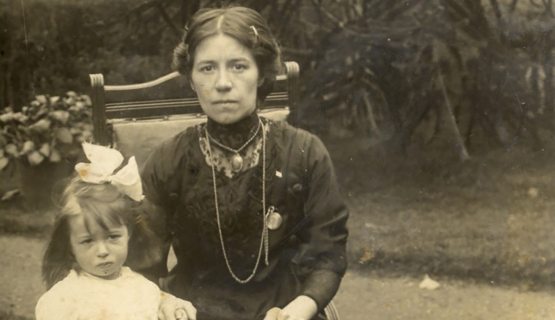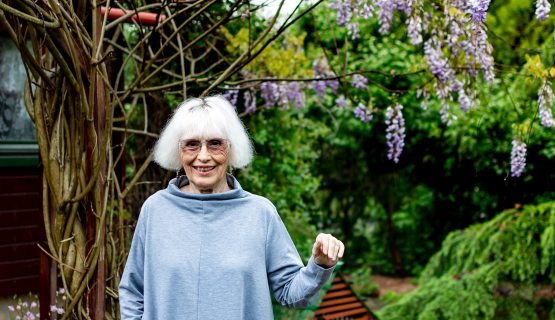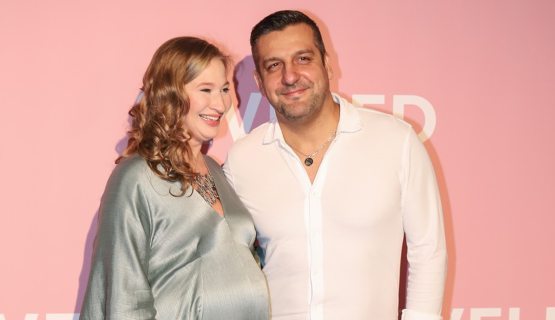“It's like you've gone to war” – HUNOR rescued 17 people from the rubble in Turkey
For almost a week, the HUNOR unit (Hungarian National Organization For Rescue Services) which consists of the country's most experienced professional firefighters, has been carrying out search and rescue work at the site of the earthquake in Turkey. Roland Farkas has been a firefighter for 28 years and led the HUNOR "Alfa" team in Antakya. The firefighting major from Pécs told kepmas.hu that the situation in Turkey is very similar to what we see in the news from Ukraine: houses completely bombed, everything destroyed to the ground. Survivors were lifted from several meters below, hand over hand in narrow passages. They worked in eight-hour shifts, day and night, while aftershocks continued. Since its creation, HUNOR has been preparing for such a fierce operation with the experience gained from countless exercises. Seventeen people owe their lives to them.
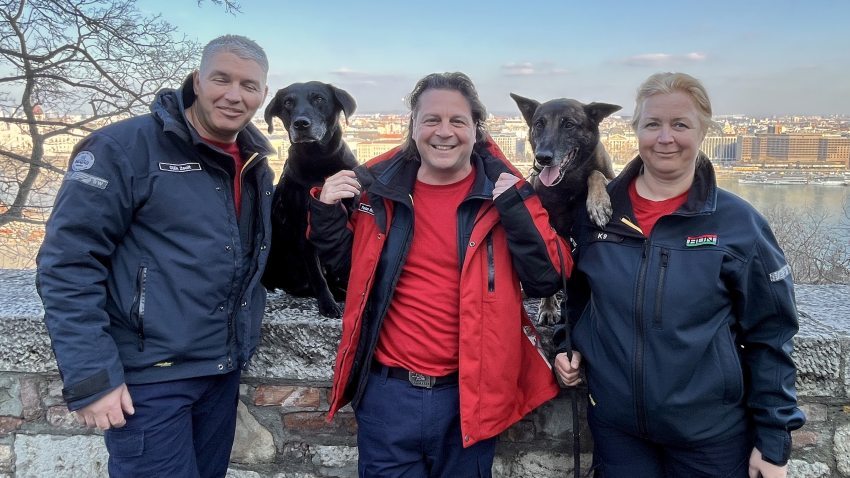
At dawn on 6 February, a devastating earthquake struck Turkey. When did the HUNOR rescue unit receive the alert to leave? How much time did they have to prepare?
It was an ordinary day, everyone was carrying on with their own lives, and some people were on duty. I was on my way to the Vienna airport because I was going to an exhibition of search and rescue equipment in Düsseldorf. As I was driving to Vienna, I received several calls, I was looking at my phone, and at 10 o'clock I received the alert by text message, and it was decided very quickly that we were on our way. The Ministry for Interior Affairs’ National General - Directorate for Disaster Management alerted 80 HUNOR members to go to our station immediately, and they were expecting us to arrive at the Budapest base by 2 pm.
We are a certified rescue team of the UN Special Forces. Countries that have a similar force register their own force with the international organization every five years. When an incident occurs, the country concerned signals to this organization that it needs international assistance. When this happens, a standby status is established, which is the designated rescue teams' state of readiness.
What was your role as one of the leaders of the rescue team working in the damaged area in Turkey?
From HUNOR, 55 people were out: staff, coordination, logistics, operations, and medical personnel, that's how the numbers add up. The search and rescue were done by two teams, "Alpha" and "Bravo", two teams of 12 people each, I was in charge of Alpha. I had eleven companions, all professional firefighters, as well as canine demolition teams and medical personnel from the National Ambulance Service. Alpha and Bravo worked 0-24 hours.
When we arrived at dawn on Tuesday 7 February, the Alfa team started work at noon that day while Bravo was setting up camp.
We worked eight-hour shifts until noon on Sunday.
What were your first impressions when you arrived on the scene? How shall we imagine it?
After we landed the plane, we travelled another 200 kilometers to Antakya, because the airports in the disaster zone have all been torn up by the earthquake, destroyed, and couldn’t receive any planes. After we landed in Adana, we went on in a troop bus and four trucks. We arrived at the site at dawn, and as we approached, we were greeted by an increasingly dramatic sight. I don't think anyone here in Hungary has ever seen anything like it. It was like going to a war... It's very similar to what we're seeing in the news from Ukraine: houses completely bombed, everything destroyed to the ground.
HUNOR rescued seventeen survivors. Do you remember the first successful rescue?
Each one is a different story, and each one is very heartbreaking. Success always makes the team feel good, we can relax a little afterwards as we watch in silence as the locals take the survivor to the medical center applauding. Imagine having to scrape someone up from several meters below, bring in a stretcher, and then fix the casulty on it.
Hand over hand, the stretcher emerged from the narrow tunnel, which was lit by an aggregator. Sometimes eight hours was not enough to get a person out: the Alfa would start, then the Bravo would continue, or vice versa.
We'd bring a person up and hand them over to Turkish medical staff, and then we usually didn't know what had happened to them. We were always out on the ruins with dogs, relying on their intuition. We only deal with those we can hear the voice of, or with those living people who the dog indicated. For us, this work is about saving as many lives as possible.
In the first days, could you still hear cries from under the rubble?
You can't hear anything really because there's so much noise. The machines are running, the crowd is noisy. There are some ruins that we could go into, like tunnels or collapsed buildings. But even there you can't see anything because it's pitch black. We send in the dog, who, if he finds a living person, starts barking. Then we scan the area with our instruments, looking for survivors, and watching for any tunnels where we can continue digging. A lot of debris has to be brought to the surface in buckets, hand by hand. We went in the direction the dog indicated, and we always took down one of the Turkish rescue team members who started shouting in Turkish, and it happened that someone shouted back from under the rubble.
Aftershocks continue in the region. Were you able to sleep during the rest periods?
The first aftershock was scary because many of us had never experienced an earthquake before. When we started work on the first day, we were right under the rubble when that first one came. Everyone reacted differently, it was quite scary.
It took about four seconds, and the rule is to come out of the rubble area, and check if any of us were injured or if the structure of the building has changed.
For the first three days, there were aftershocks every three hours, even if you were asleep, it woke you up. You got so used to it that by the end I knew that once you were under the rubble, there was simply nowhere to run. We'd look at each other, wait for it to pass, and keep working.
Our camp was in the enclosed garden of a restaurant. HUNOR is self-sufficient, we went there with our tents, beds, sleeping bags, food, medicine, and everything. We did not rely on the locals. There is no such thing as 24 people from two teams resting at the same time, so while 12 people were resting, the other 12 were working. The eight-hour shift rotation means that there are times when you work during the day and times when you work at night, so our daily cycle changes. My body adapted to that, I could even sleep for six hours. It was minus 6-7 degrees at night, which is not easy, but we were given blankets and then heating through the logisticians. Ambassador Viktor Mátis brought us a big diesel generator.
You spent six days on rescue. How long is there a realistic chance of finding survivors?
The first four days - what we call the first 100 hours - are critical for the rescue. But it's influenced by many things: if it's minus 10 degrees, it's no use trying to find survivors, they'll freeze to death the first night. But if someone is in an isolated area, they have a good chance of not freezing to death. A lot of things affect survival. There have been lucky situations where a survivor had air, a blanket, or a water bottle.
So it’s possible to survive for ten days even.
How was the cooperation with the Turkish authorities?
We were soon noticed and the word spread around town about how Hungarians worked. They relied on us because they saw that we are professionals, our equipment is professional, our knowledge is great, and our dogs are successful. We worked in an area north of the Orontes River, on a main street. We didn't even meet any other international team there, only the Turks. We were given the very famous Renaissance Residence as our area of operations, a luxury apartment complex with thousands of people, a lot of actors, athletes, and Turkish celebrities living there. The whole building had fallen on its side. It was widely reported that the apartments there were sold as earthquake-proof... The owner and the architect of the building tried to flee the country, they were the first to be arrested.
Did you talk to Turkish civilians and families?
We had an operations control center, and many civilians approached that center to ask for help. They knew we had two instruments that they hadn't seen in other units. One is a fiber optic camera and the other is an acoustic device that is very sensitive to sound. With a dog and these two instruments, we went to a lot of places when someone asked for help.
You arrived home more than a week ago. Is it more physical or mental fatigue that you suffer from?
At noon on Sunday, our superiors told us that the operation was over, we were breaking camp and the plane was coming to pick us up. You let go of stress, you let go of concentration, you suddenly feel relieved. We left there all the equipment that the Turks could use, our tents, sleeping bags, drinking water, food. We only took the rescue equipment and the instruments. It was important that no one in the team was hurt, we were glad that everyone was okay. When the stress gets out of you, there comes a feeling of fainting from exhaustion. We also look back on the past period with such pride because many people didn't know about the existence of the HUNOR rescue team until now.
We are all professional firefighters, we are not civilians and we are not volunteers. Everybody has 20 years or more of firefighting experience. Our team consisted of the best professional firefighters from all over the country.
Physically, your body’s working turns upside down. We were up for about ten hours, then we rested for five or six hours. When we came home, it was the same thing, it didn't matter if it was noon, 8pm, or 4am. In the first few days, I would sleep for four hours and get out of bed at 2 am, because that's what my sleep cycle indicated. We got home at dawn on Monday, and that went on until Thursday. Then I tried to get back into the pattern of going to bed at night and getting up in the morning. Thursday night was the first time I slept for six hours straight.
Do you, as a firefighter, still dream about what you saw?
I didn’t really dream about anything, but during the search and rescue we always shone our headlamps into each other's eyes at night, which was distracting, so we had to cover each other's headlamps. Since we came home, once or twice at night I have had a dream of someone flashing a light into my eyes.
Does the team receive any psychological help to process what they have seen and experienced?
Yes, we are obliged to undergo a special psychological screening.
Earlier this week, Turkey experienced another earthquake of 6.4. Are you in contact with your Turkish colleagues?
No, we aren’t, but they expected these aftershocks. While we were in Turkey, there was another shock of 4.3 just after 8 pm on Saturday night, which was not an aftershock, but a real earthquake. Just as the Alpha and Bravo were taking turns at the damaged site. We were standing in the street going over operations with the Turkish troop leaders when the quake hit us hard.
The semi-collapsed building we were standing in front of crackled and crumbled. Pieces of the building were falling off, but fortunately, no one was hurt.
There are a lot of buildings that are really only hanging on by a thread, it's no wonder that damaged buildings collapse on their own later. The authorities don’t let anyone back into their homes, so people are living on the streets or in their cars. When an earthquake happens, it is very important to know the exact time when it happened. The 6 February quake was at dawn, which is why it caused so many casualties because practically everyone was asleep. People were asleep, and if it had happened in the afternoon, there would not have been so many people in their homes.
Has HUNOR been in such an operation before?
No, this was the first one. We've worked on other incidents - the 2013 Danube floods, the Serbian floods, the 15 March snow emergency, gas explosions, and house collapses - but we've never worked on an earthquake. The organization was founded twelve years ago, and since then we have participated in many trainings. Every year there is an international training similar to the one in Turkey, so we knew each other, we knew that everyone was experienced. Everybody knew their job, that's what we've been preparing for twelve years. Our unit has to be re-certified every five years by international experts, so we have been certified twice as an urban heavy category search and rescue unit.
Recently, the HUNOR rescue team, like other rescue teams, visited the Sándor Palace, the official residence and working place of the President of Hungary. Did you receive an award?
Not an award but a commemorative card congratulating us on our success. It was a gesture on the part of the President of the Republic, Mrs. Katalin Novák, to host us.
